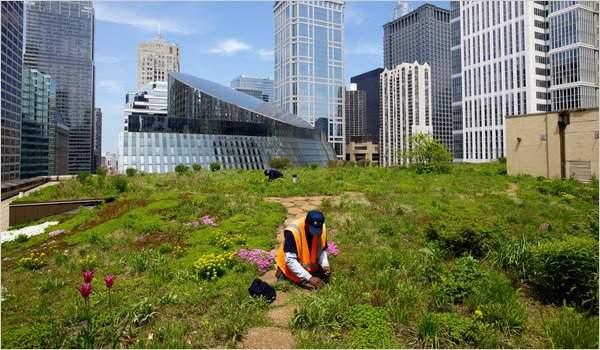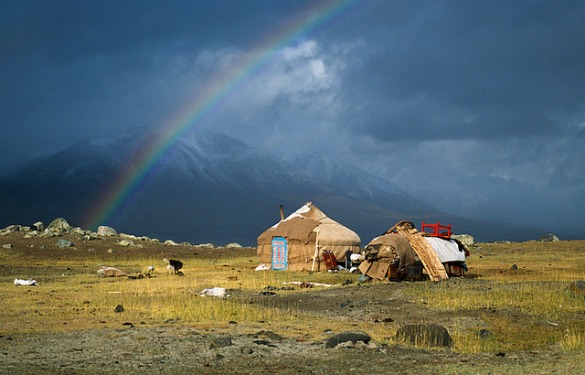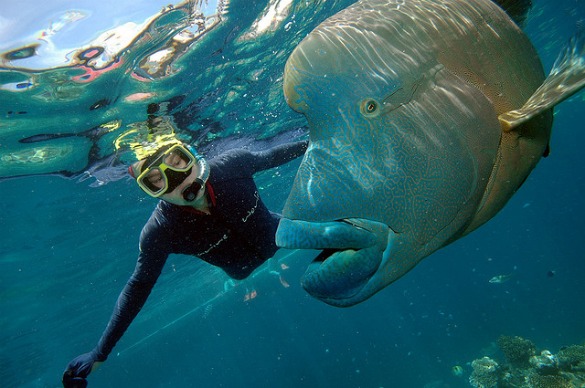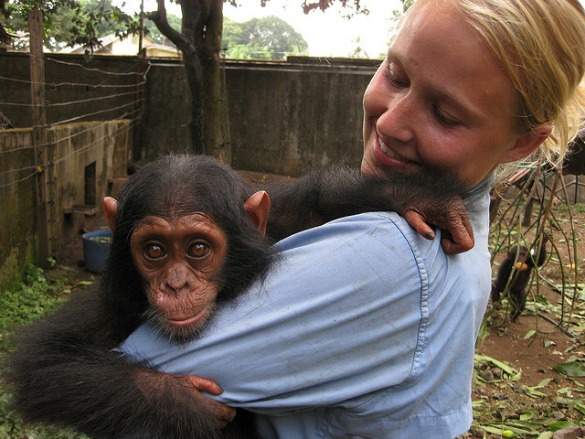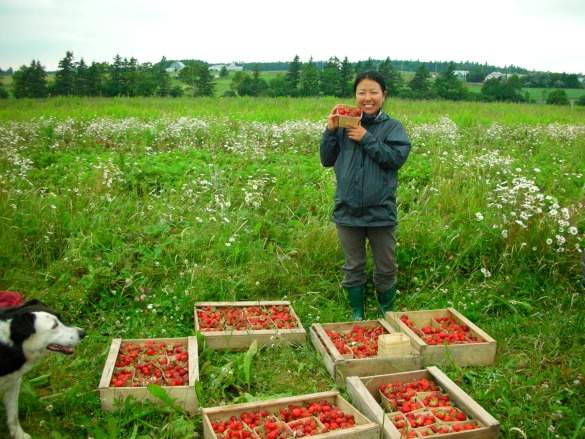Our “Sustainable Travel” series is sponsored by Global Basecamps. Global Basecamps is specialty travel company that helps independent travelers research and book locally owned boutique hotels, off-the-beaten path lodges and multi-day excursions all over the world. Whether hiking the Inca Trail, experiencing a traditional Japanese Ryokan, or relaxing on the beaches of Thailand, Global Basecamps specializes in designing completely customized itineraries to meet each travelers specific priorities and match their travel style.
When a friend first mentioned ecotourism to me, the image that came to mind was camping in absolute wilderness areas surrounded by nothing but spectacular landscapes and the sounds of the wild. I pictured an overstuffed, heavy backpack on my back, long days of strenuous hiking, cooking my meals on a camp stove, and eating out of a mess tin. Camping and hiking expeditions are a part of ecotourism, but it turns out that there is a lot more to this approach to travel than was initially apparent to me.
The International Ecotourism Society defines ecotourism as “responsible travel to natural areas that conserves the environment and improves the well-being of local people.” My research into the wide range of ecotourism opportunities around the world has led me to edit their definition slightly, to include all responsible travel that conserves the environment and improves the well-being of local people, whether it be in a natural area or not.
Giulia Maria Mozzini Crespi, President of Italy’s National Environment Trust has said that “you protect what you love, and you love what you know.” International travel can be a great way to get to know the world’s cultures, people, languages, history, architecture, and landscapes. Travelers today are increasingly conscious of their impact on the environment and the cultures that they visit. Ecotourism provides visitors with a myriad of ways to explore the world while simultaneously helping to preserve its ecological and cultural diversity. Intrigued? Below is a list of six things I bet you didn’t know about ecotourism.
It can be done in the city
Yes, it can. Which is good news, because it means that the urbanites, who now make up more than half of the world’s population, can welcome travelers looking to visit a new place in a responsible and eco-conscious way. Urban eco-tourists eat at locally owned restaurants that source seasonal ingredients from regional growers like San Francisco’s Jardiniere, or London’s Acorn House Restaurant, that in addition to sourcing regional ingredients, is built from organic and recycled materials, composts or recycles 100% of its waste, and uses green electricity.
Eco-tourists use public transport, walk, ride bicycles, and take ferries whenever possible, and stay in locally owned or green accommodations like Tokyo’s Yoshimizu Hotel, which has earth walls, bamboo floors, and no phones, TVs or fridges. Guests who enjoy cycling can have a fold-up bike from Cool Bike delivered to their hotel. And in San Francisco, early risers can start their day listening to a wave organ, visit the city’s colorful flower market, and then enjoy a cup of certified organic coffee at Blue Bottle Coffee.
In virtually every city around the world you can find opportunities to add a bit of ecotourism to your travels. Cities also provide a wealth of opportunities to learn new skills, enjoy local music and artwork, or volunteer.
>> Read ten tips for more eco-friendly travel
The possibilities are only as limited as your imagination
Coming up with your ideal ecotourism activities and accommodations is an opportunity to let your imagination run wild. Those who have always wondered what it would be like to be a nomad can go stay in a ger in Mongolia or join a traditional Sami reindeer migration in Norway. Travelers who love fresh food, agricultural landscapes, and the idea of being surrounded by water can visit Can Marti on the Spanish island of Ibiza, and those who prefer the sensation of swaying in their sleep can make a reservation at La Piantata, a tree-house perched in the branches of an enormous oak, overlooking a lavender field in Italy’s central province of Viterbo.
If the idea of experiencing wilderness and wildlife up close is appealing, but you would rather come home to luxury at the end of the day, check out Azura at Grabriel’s inside one of Mozambique’s National Parks, or sleep in a treetop in Panama’s Canopy Lodge.
It’s all about the journey
As an eco-tourist, how you get to and navigate around your destination is just as important as where you stay, and what you do. Instead of trying to get to your destination as quickly as possible, consider finding creative ways to savor the journey. Walk, cycle, kayak or sail, take the bus or tram.
Enjoy the dramatic mountains and golden plains of northern Spain through the windows of a train hotel that connects Paris and Madrid; experience Amsterdam’s canals from a European houseboat or weave through southwestern India on a Keralan houseboat. For a more exotic experience, take an elephant safari through India, a camel safari through the desert and mountains of Egypt’s southern Sinai, or canoe along Botswana’s Okavango delta. Taking alternative transportation not only helps the environment by reducing your carbon footprint. You will also have a greater chance of striking up conversations with locals, and more time to enjoy the landscapes and people, and take photographs of your surroundings.
You can pursue your passion through ecotourism
Is there something you have always wanted to learn how to do, but never got around to trying? This is your opportunity to pursue a passion that gets you closer to the culture of the place you are visiting. Take a poetry, fiction, photography or landscape painting class at the Hellenic International Studies in the Arts (HISA) centre on the island of Paros in Greece. Learn how to build using sustainable materials, take an organic cooking class, or learn how to dive and explore coral reefs on Australia’s Heron Island.
If you are a foodie with a dream of sampling the world’s rich culinary traditions fresh out of the kitchens in which they are prepared, Slow Food Foundation’s Ark of Taste project has compiled a list of traditional and rare foods and beverages from around the world that are at risk of extinction that could serve as your guiding map.
>> Discover natural phenomena to see before they’re gone forever
It’s an opportunity to be of service
Since the main purpose of ecotourism is to help preserve the natural environment and culture, volunteering is an ideal way to spend part, or all of your vacation time. Some of the most pristine wilderness areas with the richest biodiversity are nature reserves, protected coastlines and national parks that frequently need assistance with a variety of projects from monitoring local wildlife to restoring coral reefs. Often these areas have restricted public access, so volunteering gives you the opportunity to experience places that you might otherwise not get to visit.
Volunteering is also a great way to get to know the country you are visiting from a different perspective, establish new friendships, practice speaking the local language, and even discover a new field of interest. Ecotourists Save the World, by Pamela K. Berdowsky and the National Wildlife Federation is a collection of more than 300 international wildlife and habitat conservation, preservation and rehabilitation projects around the world. The International Ecotourism Society is a great resource for locating potential volunteer possibilities. Be sure to check out the section of their website entitled “Volunteer in ecoDestinations.”
>> Read From Tourist to Agent of Change: What You Need to Know About Voluntourism
You need not be a tourist at all
There are a number of ways to experience the way of life in your destination through the eyes of locals. They all involve giving up a certain degree of autonomy, but the payoff of getting to personally see what life is like from within the home of a local family is usually well worth the sacrifice, plus you know that your money is being reinvested in the local community. Hospitality exchanges are one way to go. CouchSurfing also connects travelers with people willing to both host your stay for a short period of time, and often to show you around while you are there. A homestay is another option that allows you to stay with a local family and benefit from insider advice on the best places to eat, hike, swim, as well as the culturally and historically significant sites that you should make a point of visiting.
You can also experience the local way of life is through World Wide Opportunities on Organic Farms. WWOOFers spend a few weeks or months living on a local farm with free room and board in exchange for working on the farm for a pre-determined number of hours every week. WWOOFers often get to enjoy fresh, delicious meals made from ingredients grown on the farm, and are usually given time off every week to explore the region.
>> Read about WWOOFing in Hawaii
Interested in learning more about unexpected ways to experience ecotourism? Read:
- Five Ways to Experience Sustainable Travel
- Secrets to Guilt Free Travel in Developing Countries
- How to Travel Responsibly on a Budget
Ecotourism is not often associated with the words like comfort and luxury. However, travelers don’t need to forfeit all amenities for their trip to be eco-friendly.Through Global Basecamps custom tours and trips travelers have access to the most unique boutique hotels and eco lodges in the world. Discover the beauty of Patagonia at the EcoCamp Suite Domes, where travelers can sleep in a real bed a night, avoiding the discomfort of traditional camping, while remaining close to the environment and in harmony with nature. Tapas Ecolodge, situated in Sapa Valley in Northern Vietnam offers breathtaking views and utilizes solar energy to power the lodge. How you reach your destination, activities you participate in, and how the local community is affected are other major aspects of sustainable travel. Global Basecamps Galapagos tours directly contribute to the Galapagos Marine Biodiversity Fund to support environmental education and marine conservation by strengthening the local communities’ ability to manage natural resources.
Contact Global Basecamps to enquire about this or other trips.
Photos by: 1, 2, 3, 4, 5, 6 courtesy of the author and may not be used without permission
